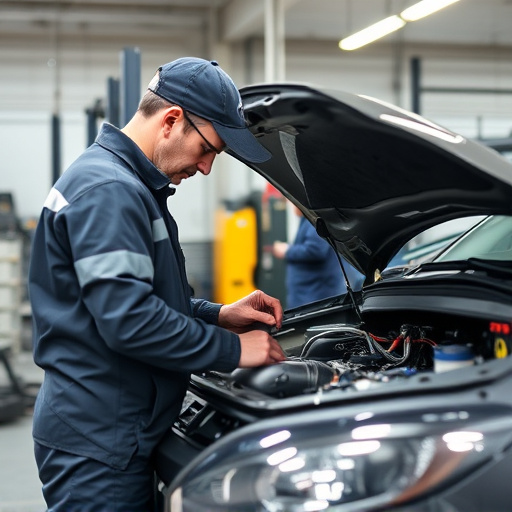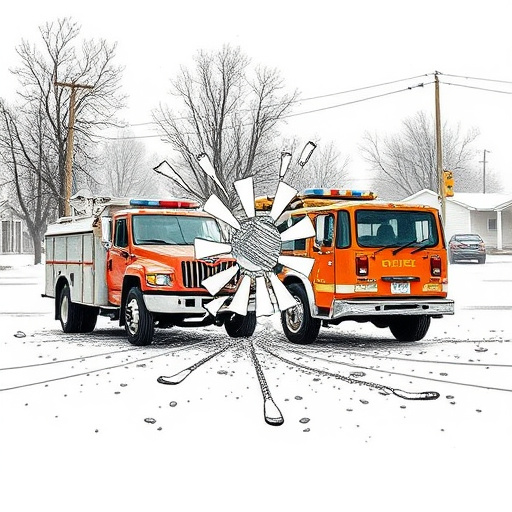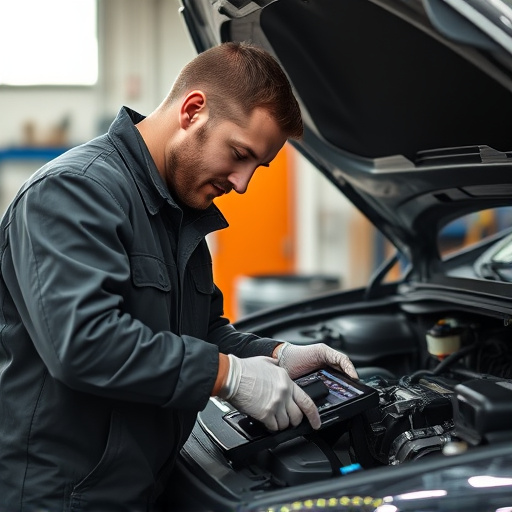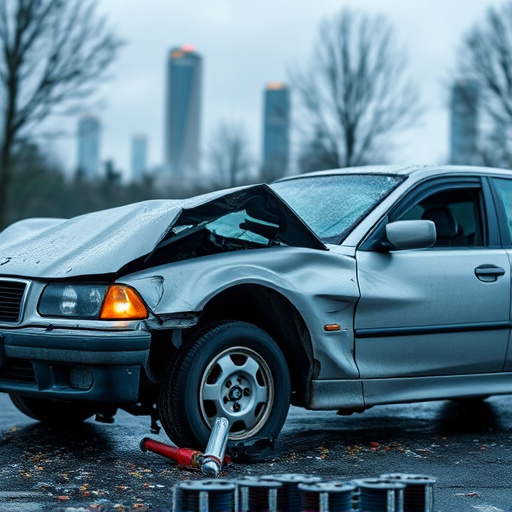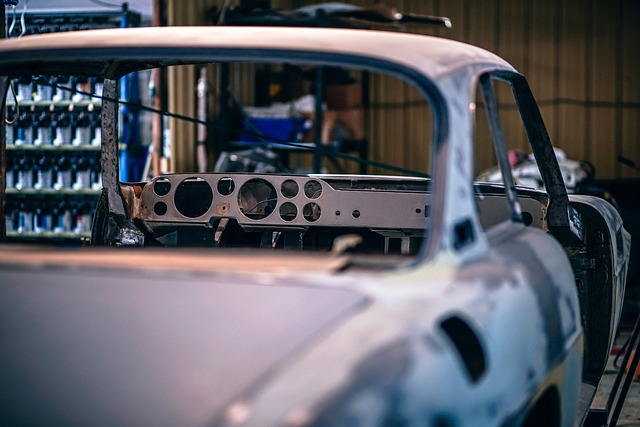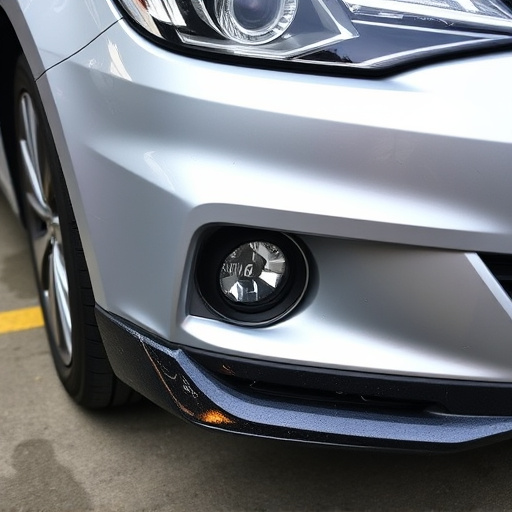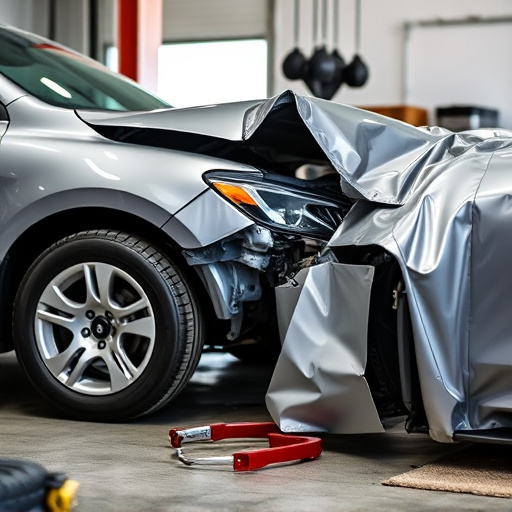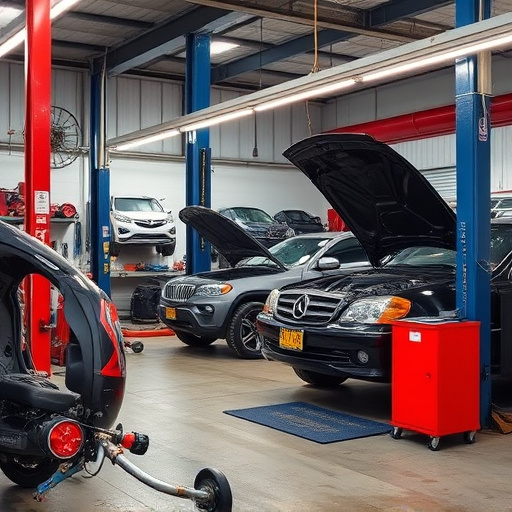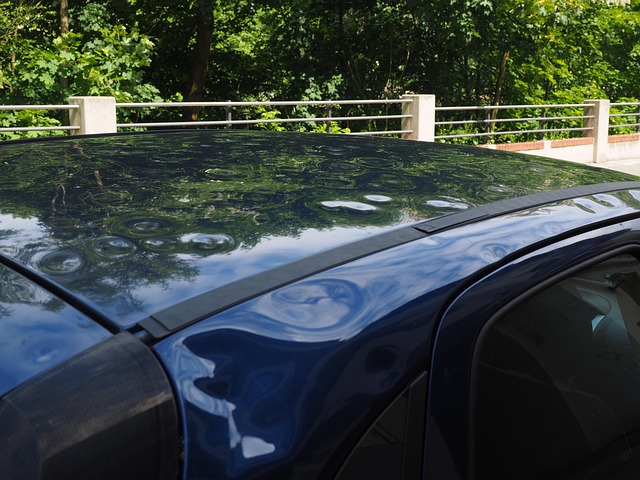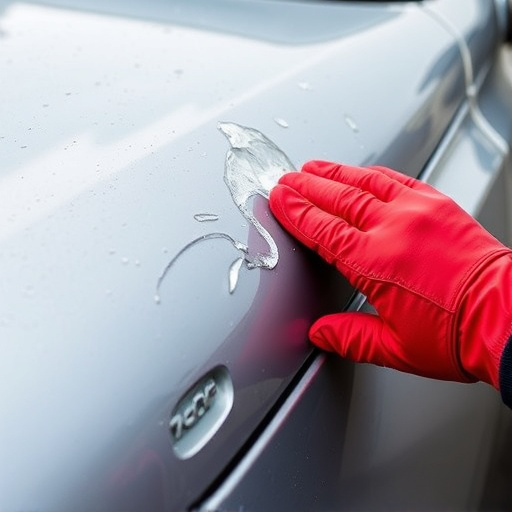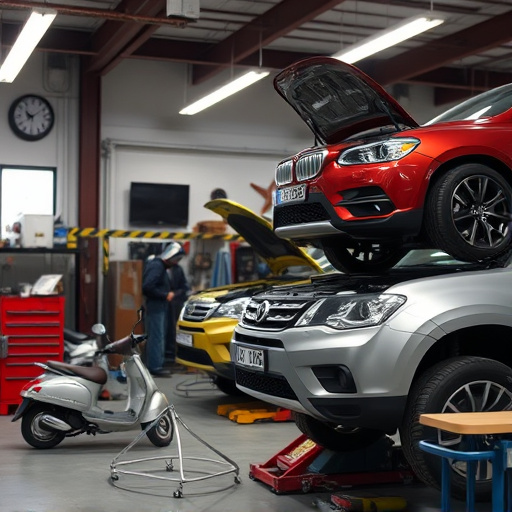The Sustainable Collision Center Certification (SCCC) sets environmental standards for car repair services, focusing on energy efficiency, waste reduction, and hazardous material management. Achieving SCCC requires eco-friendly practices like recycled materials, water conservation, and non-toxic cleaning agents, minimizing the collision center's environmental impact while delivering high-quality repairs. Sustainable practices benefit businesses by reducing costs and enhancing reputation, appealing to environmentally conscious consumers seeking green auto repair solutions.
“Sustainable Collision Center Certification is a game-changer in the automotive industry, setting new standards for eco-friendly practices. This comprehensive guide explores what this certification entails and why it’s crucial for businesses embracing sustainability. We’ll break down its key components, revealing how centers can reduce their environmental impact while maintaining high service quality.
From cost savings to enhanced reputation, discover the multifaceted benefits that make sustainable collision centers a forward-thinking choice.”
- Understanding Sustainable Collision Center Certification
- Key Components of This Green Certification
- Benefits for Businesses and the Environment
Understanding Sustainable Collision Center Certification
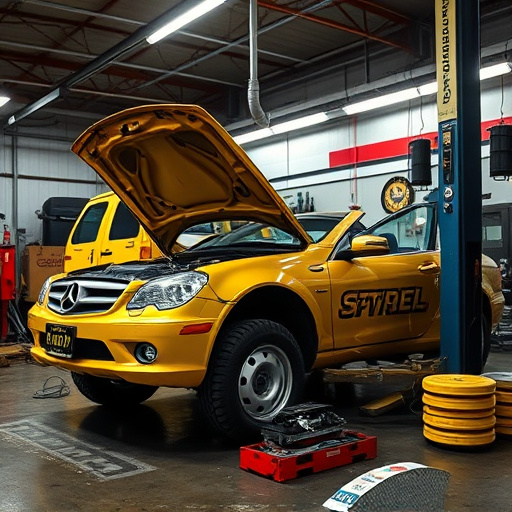
The term Sustainable Collision Center Certification (SCCC) refers to a comprehensive set of standards and guidelines designed to promote environmental responsibility and operational excellence within automotive repair services, particularly those specializing in car damage repair. It’s not merely about adopting eco-friendly practices; SCCC encompasses every aspect of a car repair shop’s operation, from energy efficiency and waste reduction to the responsible management of hazardous materials commonly associated with car collision repairs.
This certification is crucial for sustainable collision centers as it ensures they meet strict criteria in areas like water conservation, air quality management, and the use of non-toxic, recyclable materials. By achieving SCCC status, a car repair shop demonstrates its commitment to minimizing its environmental footprint while delivering high-quality automotive repair services.
Key Components of This Green Certification
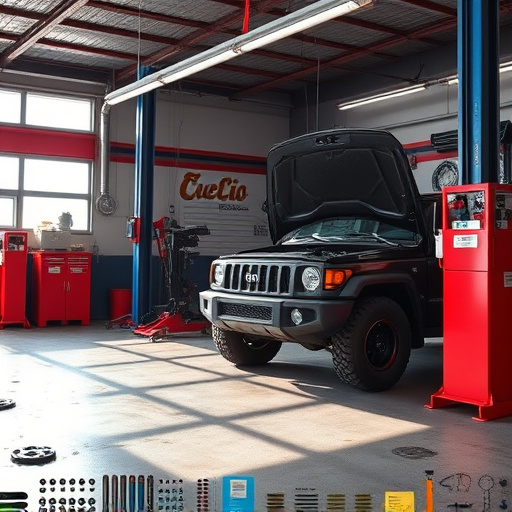
Achieving Sustainable Collision Center Certification involves several key components that set these facilities apart as eco-conscious leaders in the automotive industry. Firstly, focus on auto glass replacement using recycled and sustainable materials is paramount. This not only reduces waste but also minimizes the environmental impact of a critical component in any car repair shop.
Additionally, integration of energy-efficient practices throughout the collision center is essential, from lighting systems to heating and cooling. Luxury vehicle repairs, while demanding precision, can be executed with an eye towards sustainability by adopting water conservation methods and utilizing non-toxic cleaning agents. These measures ensure that car repair shops not only meet but exceed environmental standards, contributing to a greener future for the automotive sector.
Benefits for Businesses and the Environment
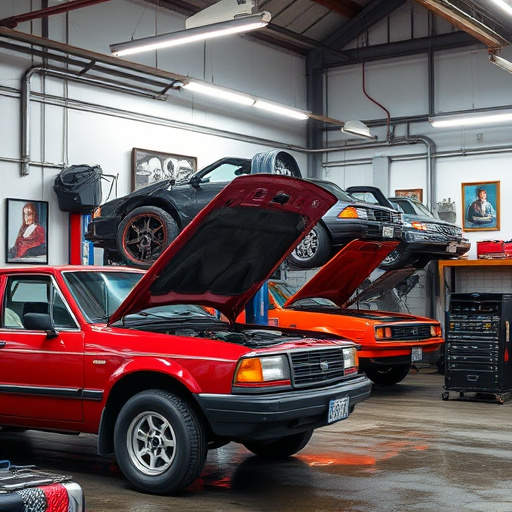
Adopting sustainable practices in a collision center offers numerous advantages for both businesses and the environment. By prioritizing eco-friendly operations, these centers can significantly reduce their carbon footprint and contribute to a greener future. One of the key benefits is the potential for cost savings; sustainable methods often lead to more efficient energy usage, water conservation, and waste reduction, all of which lower operational expenses over time.
Additionally, embracing sustainability enhances a collision center’s reputation and appeals to environmentally conscious customers. It showcases their commitment to responsible business practices, fostering trust and loyalty among clients. This can be especially beneficial in attracting a new generation of consumers who actively support eco-friendly vehicle repair services and car restoration processes. As businesses strive for excellence, sustainable collision center certification becomes a powerful tool to drive positive change while ensuring high-quality vehicle restoration and efficient, environmentally conscious repairs.
The pursuit of sustainability within the automotive industry is no longer an option but a necessity, and the certification of Sustainable Collision Centers leads the way. By adopting eco-friendly practices, these centers not only reduce their environmental footprint but also contribute to a greener future for all. This certification serves as a benchmark for excellence, encouraging businesses to embrace innovative solutions that benefit both operations and the planet. As we move forward, sustainable collision centers will become the norm, ensuring a cleaner, more responsible automotive ecosystem.
